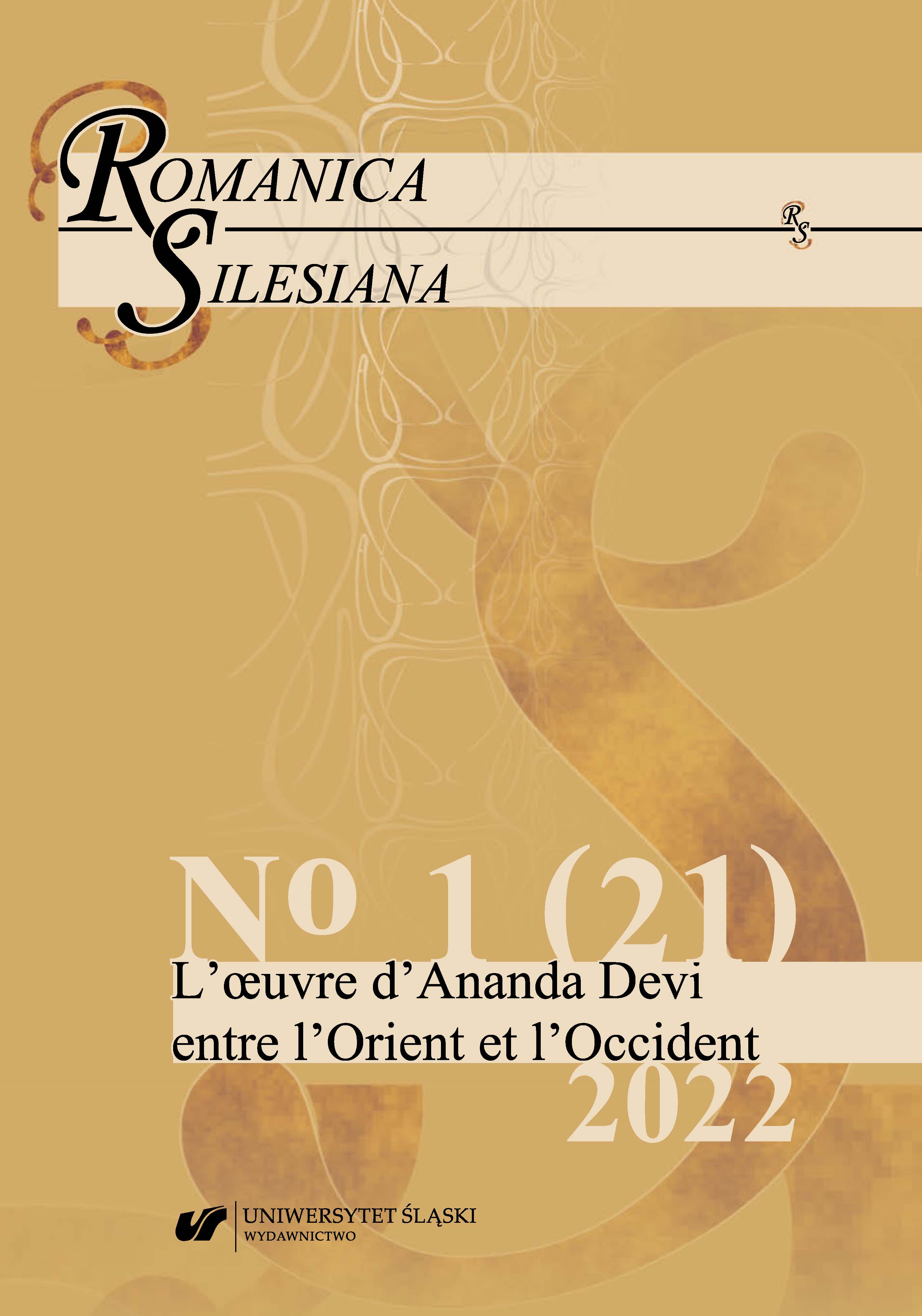« Ce corps, finalement, est une œuvre ». Le vide et le plein des corps chez Devi ou le sens du sacrifice et de la dévoration
“Ce corps, finalement, est une oeuvre.” The Emptiness and Fullness of Bodies in Devi or the Meaning of Sacrifice and Devouring
Author(s): Valérie Magdelaine-AndrianjafitrimoSubject(s): Studies of Literature, French Literature, Other Language Literature, Theory of Literature
Published by: Wydawnictwo Uniwersytetu Śląskiego
Keywords: devouring; fasting; sacrifice; monstrosity; flesh; corporality; abjection; poetics of horror
Summary/Abstract: The representation of the abused, sometimes deformed bodies of the characters, most often too thin, rarely obese, is one of the most salient points in Devi’s writing. We would like to observe her dialectic of emptiness and fullness. Fasting or cannibalistic bulimia might not simply embody, in one case a Hindu reference, in the other, the excesses of a Western consumer society. By comparing the dissemination of the forms of food in Devi’s “Western” works (Les Jours vivants (2013), Manger l’autre (2018)) and in “Indo-Mauritian” works (Le Voile de Draupadi (1993), Le Sari vert (2009)), one could read in them the marks of a paradoxical, self-sacrificial asceticism. The works are part of the same powerful and obsessive poetics of the flesh ‒ generally abject and rotting ‒ opening onto a redefinition of the human and the living that she comments on in her essays Fardo (2020) and Deux malles et une marmite (2021). All the worlds are creolised to propose the birth of a “personal mythology” of the author made of devouring and devoured “goddesses”. The novels “feed” on the writer’s plural imaginations to construct a metatextual questioning of the radicality of creation and the nature of Beauty.
Journal: Romanica Silesiana
- Issue Year: 1/2022
- Issue No: 21
- Page Range: 1-13
- Page Count: 13
- Language: French

